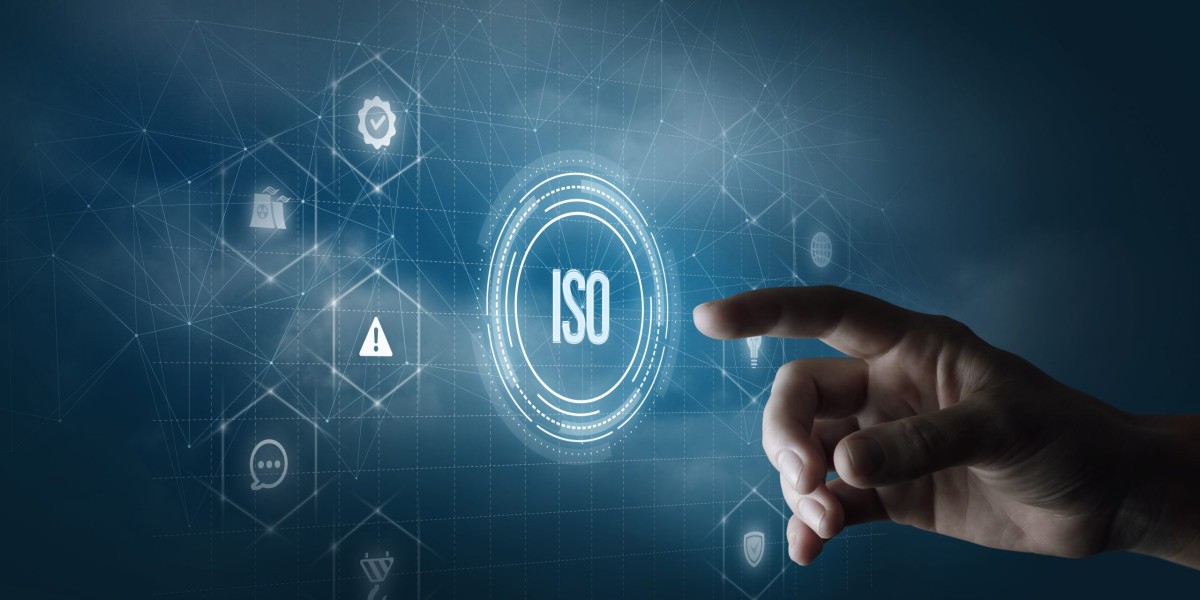I. Introduction to ISO 27001 Certification
A. What is ISO 27001?
ISO 27001 is an internationally recognized standard for information security management systems (ISMS). It provides a structured framework to help organizations protect sensitive data, manage information security risks, and comply with legal and regulatory requirements. The standard emphasizes risk assessment, risk mitigation, and continual improvement of an organization's information security.
B. Importance of ISO 27001 Certification
In today's digital age, where cyber threats are ever-increasing, ISO 27001 certification is essential for organizations that handle sensitive data. Achieving this certification demonstrates a commitment to safeguarding information, building trust with clients, and ensuring the confidentiality, integrity, and availability of data. It is particularly relevant for sectors like finance, healthcare, and technology, where data security is paramount.
C. ISO 27001 Certification in Colombia
Colombian organizations are increasingly adopting ISO 27001 to address growing cybersecurity challenges and to meet international standards. With the rise of digital transformation initiatives in Colombia, businesses are leveraging this certification to establish a competitive edge and enhance their credibility in global markets.
II. Benefits of ISO 27001 Certification
A. Enhanced Data Security
ISO 27001 helps organizations identify and address vulnerabilities in their information systems, reducing the risk of data breaches. By implementing robust security measures, businesses can protect sensitive customer and organizational data from unauthorized access, modification, or loss.
B. Compliance with Legal and Regulatory Requirements
In Colombia, laws like Habeas Data and data protection regulations align with international standards for information security. ISO 27001 certification ensures compliance with these regulations, reducing the risk of legal penalties and reputational damage.
C. Competitive Advantage
Organizations certified under ISO 27001 gain a competitive edge by showcasing their commitment to information security. This certification not only builds trust with clients and partners but also opens doors to new business opportunities, particularly in sectors where information security is a critical requirement.
III. Key Components of ISO 27001
A. Risk Assessment and Management
A central aspect of ISO 27001 is its focus on identifying and managing risks to information security. Organizations must assess potential threats, evaluate their impact, and implement appropriate controls to mitigate risks.
B. Information Security Policies
ISO 27001 requires organizations to establish comprehensive information security policies tailored to their specific needs. These policies guide employees and stakeholders in maintaining security best practices.
C. Continual Improvement
ISO 27001 emphasizes the need for continual improvement of the ISMS. Regular audits, performance reviews, and updates ensure the system evolves to address emerging threats and organizational changes.
IV. Steps to Achieve ISO 27001 Certification
A. Initial Assessment
The first step is to conduct a gap analysis to identify areas where the organization's current practices fall short of ISO 27001 requirements. This assessment forms the foundation for developing an implementation plan.
B. Implementation of ISMS
Organizations must design and implement an ISMS that aligns with ISO 27001 standards. This includes defining the scope, establishing policies, and implementing risk controls.
C. Certification Audit
To achieve certification, organizations must undergo a formal audit by an accredited certification body. The audit is conducted in two stages: a documentation review and an on-site assessment to verify compliance.
V. Challenges in Implementing ISO 27001
A. Resource Constraints
Implementing ISO 27001 requires a significant investment of time, money, and skilled personnel. Smaller organizations may face challenges in allocating these resources.
B. Resistance to Change
Employees and management may be resistant to adopting new processes and controls. Effective communication and training are essential to overcome this barrier.
C. Complexity of Compliance
Ensuring compliance with ISO 27001 can be complex, especially for organizations with large and decentralized operations. Detailed planning and monitoring are required to maintain consistency across the organization.
VI. Industries Benefiting from ISO 27001 in Colombia
A. Financial Sector
The financial industry in Colombia is highly regulated and handles vast amounts of sensitive data. ISO 27001 certification helps banks and financial institutions secure their systems and maintain customer trust.
B. Technology and IT Services
With the rapid growth of Colombia's IT sector, ISO 27001 certification is essential for software companies and IT service providers to protect client data and compete in international markets.
C. Government and Public Sector
Government agencies in Colombia are adopting ISO 27001 to safeguard critical infrastructure and ensure the security of citizens' data.
VII. ISO 27001 Certification Process
A. Planning and Preparation
Organizations must define the scope of their ISMS and prepare a roadmap for implementation. This includes identifying key stakeholders and establishing a project team.
B. Internal Audit
Before the certification audit, organizations should conduct an internal audit to identify gaps and address non-conformities. This step ensures readiness for the external audit.
C. Certification and Maintenance
Once certified, organizations must undergo regular surveillance audits to maintain their certification. Continuous improvement and compliance monitoring are essential for long-term success.
VIII. Conclusion
A. Importance of ISO 27001 Certification
ISO 27001 certification is a vital tool for organizations in Colombia to enhance their information security, comply with regulations, and build trust with stakeholders. As cyber threats continue to evolve, this certification provides a robust framework for managing risks effectively.
B. Role in Digital Transformation
In an increasingly digital economy, ISO 27001 certification supports Colombia's efforts to establish a secure and resilient digital infrastructure. It enables organizations to embrace innovation while safeguarding their data assets.
C. Commitment to Security Excellence
By adopting ISO 27001, Colombian businesses demonstrate their commitment to security excellence, positioning themselves as leaders in a competitive and security-conscious global market.








